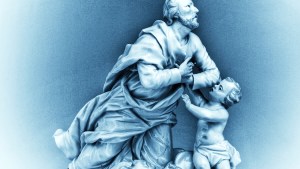The body is one of the great paradoxes of our time. Even as human relationships become more and more relegated to the “virtual world,” many people focus entirely on the material dimension of life.
Too many currents reduce ecological concerns to protecting life as a strictly material phenomenon. This puts plants and animals on an equal footing with humanity, while scorning the human spirit.
In the midst of these concerns, the Church proposes a counter-track, a “theology of the body.” Alas, this theology often sees its scope limited to talking about the sexual dimension of human beings. Sometimes it’s portrayed in such a light that our contemporaries believe that Catholics don’t love the human body or don’t understand it.
The body is central to Christianity
Yet Christianity is a religion that, in a certain sense, is all about the body. Any authentically Christian theology is necessarily a “theology of the body” for it speaks of Jesus, God who became one of us, body included.
The sharing of our human condition by a God who loves us is the demonstration of the immensity of divine love for our corporeal reality. In the Incarnation, he is not a God who is a stranger to the flesh.
God is the author of life as we live it, and he created it so that, through this corporeal experience of ours, we can come to him. So, when God shares our temporal and fragile mode of existence, He doesn’t stray from who he is.
Corporality is not an accidental part of being, but an essential aspect of our life. We are a body united to a soul, and one will never live without the other. We are body and soul for eternity. The body is no more a vulgar disposable container than the soul is a disembodied and abstract dimension of our being, the only one worthy of God. Rather, it is in the unity of the two that we are fully persons and images of God, capable of God.
Human persons are a body-soul unity, incarnated souls as much as ensouled bodies. It’s not that “I” have a body or “I” have a soul, but rather that we are our body and soul together.
Faith in Jesus prevents us from choosing between body and spirit. They are two aspects of one being. The spirit is the active principle of that unity, but not a different, separable entity.
A body made for Heaven
Our body is not a temporary vehicle for a part of our life. It’s where our personal unity resides, and in this respect it’s essential to our experience of heaven. In this life, it enables us to experience sensations, emotions, and events that bind us to each other and to God himself. In heaven, it will be the same!
If the Church dares to speak of the “resurrection of the body,” it’s because our faith convinces us that we will be the same people in the beatitude of heaven. This means that our body will accompany us there. Definitions and descriptions end here; faith alone guides us, and the details escape us.
So, since we’ll be living for eternity with a body, it’s high time we lived in peace with it! Of course, it can be the occasion of suffering, complexes, and sins. There are days when our body feels heavy and superfluous, when we regard it as a stranger or even a threat.
But it’s also through our body that we experience many of our pleasures, our rest, our love, and our joy. In our body, we experience our nostalgia, our appetite for Heaven and its wonders. Its need for more, its insatiable pursuit of happiness, is proof of our predestination to a joy in which it will take part!
From heaven, God lovingly contemplates each of us, his creatures. He marvels at this being which is so similar to himself because he made it out of love and for love. So, to contemplate God, let’s not forget to contemplate our bodies. By loving what He loves, we may love Him a little better.



